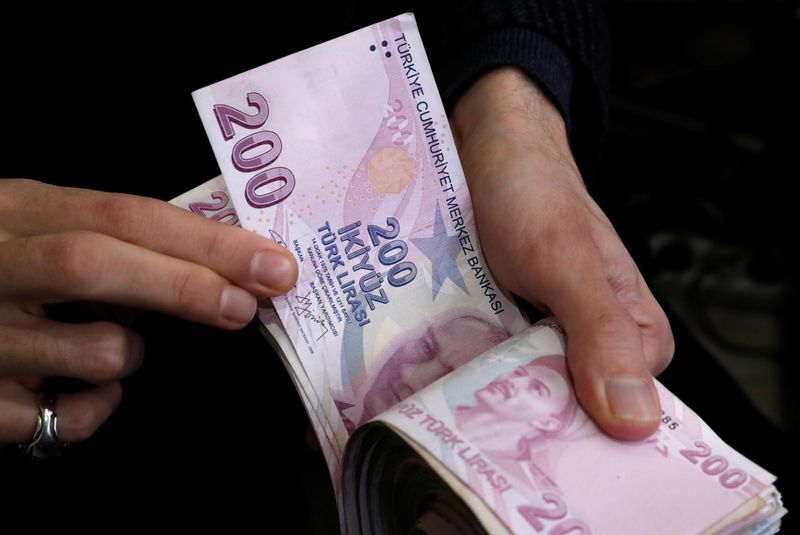Street Calls of the Week
Investing.com - As the initial vote count in the Turkish presidential election indicates that neither candidate has a clear majority, financial markets are preparing for increased turbulence surrounding the nation's currency. The possibility of a runoff between President Recep Tayyip Erdogan and opposition candidate Kemal Kilicdaroglu adds further strain on the tightly-controlled Turkish lira.
During early trading hours in Asia, the lira showed modest weakening as state banks stepped in to maintain an exchange rate near 19.65 per dollar. In contrast, it closed at 19.58 on Friday. Despite this intervention, officials from the central bank chose not to comment on exchange rates.
A second round of voting will take place on May 28th if no candidate surpasses the required threshold of 50% total votes during Sunday's election. As per recent data from state broadcaster TRT, Erdogan held approximately 49.6%, while Kilicdaroglu trailed with around 44.6%.
The controversial economic policies introduced by Erdogan since taking office have placed significant pressure upon Turkey's national currency over time – including interest rate cuts aimed at promoting growth despite rampant inflation and government interference with market dynamics.
In response to such unorthodox measures enacted by current leadership like pursuing lower borrowing costs through multiple central bank governor replacements since just 2019 alone; opposition party alliances fronted by Kilicdaroglu have pledged their commitment towards restoring more conventional practices should they win control over future administrations instead - particularly when it comes down to matters involving interest rates or central bank autonomy.
Foreign investors have grown increasingly wary of the Turkish market, with holdings in stocks and bonds dropping from around $152 billion a decade ago to less than $24 billion before Sunday's election. A policy overhaul is essential for restoring investor confidence and reversing the trend of outflows totaling approximately $11 billion within just five years.
However, as government efforts to support the lira continue draining central bank reserves and creating unsustainable currency levels, Medley Global Advisors' head of product Nick Stadtmiller believes that further devaluation is imminent over forthcoming quarters. He also warns that tighter controls may be implemented by authorities to prevent additional capital flight.
